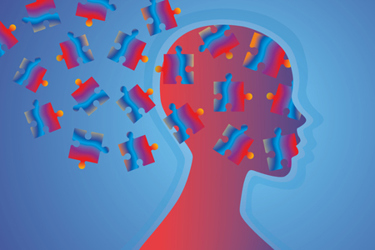A Primer For Understanding Psychedelic Clinical Research
By Hans Eriksson, chief medical officer, HMNC Brain Health

The complexity of mental health clinical trials always has been a major hurdle. In the past decade, pharma giants have cut research on psychiatric medicine by 70% while the demand for mental health treatments continues to increase.
In recent years, there has been a resurgence of interest in psychedelic and dissociative medications for therapeutic purposes, marking a paradigm shift in clinical research. Traditionally, drug therapies have focused on pharma interventions, aiming to alleviate symptoms or manage diseases. However, the emerging field of clinical research on psychedelics in a broader sense brings a unique and transformative approach to CNS drug development.
Considerations For Developing Trials For Psychedelics Vs. Traditional Drug Therapies
For psychedelic companies, the classic problems researchers face in mental health clinical trial design is only the start. Some common questions are how to blind patients and physicians in a psychedelic trial where experiences may be profound, and how a hallucinogenic medication can be such a life-altering experience. How do you design the best and safest environment for a patient’s “trip,” and is the experience of the “trip” even necessary for all the different compounds under the psychedelics umbrella?
The research activities for classic psychedelic treatment for use in depression and other mental disorders in the U.S. are very intensive, and several psychedelic compounds are in active clinical development. Recent clinical trials have revealed their potential therapeutic value, particularly in treating mental health conditions like depression, post-traumatic stress disorder (PTSD), addiction, and anxiety. What sets psychedelics apart from traditional drug therapies is their profound impact on consciousness and subjective experience, even though work is ongoing on “non-psychedelic” psychedelics.
For instance, psilocybin is currently in a Phase 3 program for treatment-resistant depression (TRD) and, while not a classic psychedelic, MDMA (methylenedioxymethamphetamine)-assisted psychotherapy is being explored for PTSD. In addition, NMDA(N-methyl-D-aspartate receptor antagonists)-receptor antagonists that typically have dissociative effects have been studied for TRD, with esketamine approved by the FDA as a nasal spray and oral formulations of ketamine studied as a medication for treatment resistant-depression.
Contrary to typical pharma approaches, psychedelics are not taken daily or regularly. Instead, they are administered in a controlled environment, often accompanied by trained therapists, with a focus on providing a transformative experience that can accelerate psychological healing. This experiential aspect, combined with the potential for long-lasting positive effects, differentiates most of the psychedelic therapies from conventional drug therapies.
Understanding Psychedelic-Assisted Psychotherapy
Psychedelic clinical research emphasizes the importance of the therapeutic context in which these substances are being administered. Rather than solely targeting symptoms, psychedelic-assisted therapy aims to address the underlying causes of mental health issues. The experience facilitated by psychedelics often opens up a space for individuals to explore and process deep-rooted emotions, traumas, and perspectives. This process, combined with the presence of skilled therapists, allows for enhanced self-analysis and personal growth.
Psychedelic-assisted therapy places significant emphasis on the integration of experiences following the psychedelic session. How you restore balance through post-experience integration helps individuals make sense of their psychedelic journey, translating the insights gained into real-life changes and sustainable transformation. This focus on holistic healing and integration is a notable difference from the approach often seen in traditional drug therapies.
Understanding “Non-Psychedelic” Psychedelics
The psychedelic experience is considered by many to be an integral and necessary part of the beneficial effects on several mental disorders. However, it has not been proven beyond doubt that this is the case. Even though the psychedelic experience in itself is described by many treated patients as important and meaningful, it also creates a need for safe administration of the medication in a setting that is supportive and helps the patient to focus on the experience. In practice, this leads to relatively work-intensive and costly sessions, decreasing the overall access to treatment.
Due to the psychoactive experience, some patients may be less suitable for treatment, such as, for instance, those at risk of psychotic symptoms. Therefore, there is a strong clinical interest in developing new treatments utilizing "non-psychedelic" psychedelics.
The effects of psychedelics have long been attributed mainly to serotonin 5-HT2A agonism. Certain effects of psychedelics indeed appear to be due to this mechanism, e.g., the head-twitch response in rodents that in turn seems to correlate with the hallucinogenic effects. However, according to a recent study, there are biological effects of psychedelics by binding to TrkB that seem to be unrelated to 5-HT2A agonism. TrkB is a receptor for brain-derived neurotrophic factor (BDNF), mediating its effects on neuroplasticity.
The study demonstrates that two important psychedelic compounds, LSD and psilocin, bind with very high affinity to TrkB. Interestingly, binding to TrkB and facilitating BDNF signaling have been proposed to be common mechanisms of action for antidepressant compounds. The study shows that there may be a potential to develop compounds with similar TrkB binding as LSD and psilocin, but without serotonin 5-HT2A agonism, that could provide prompt and substantial antidepressant efficacy without psychedelic experiences. Furthermore, it increases the focus on TrkB mechanisms for antidepressant drug research in general.
The study provides the scientific foundation to develop novel antidepressant treatments based on the insights from work with psychedelics and other mind-altering antidepressants, but with vastly reduced psychological side effects.
Further, the Ketabon program is aiming to prove that depressive symptoms can be overcome without the "experience." Ketabon comprises an oral prolonged-release formulation of ketamine for TRD with minimal dissociative side effects. The pharmacokinetic profile of the prolonged-release formulation could significantly improve the risk profile and patient convenience by minimizing dissociative side effects compared to the currently applied intravenous and intranasal ketamine therapies. Clinical development of oral prolonged-release ketamine could also be potentially expanded into other indications beyond depression, such as anxiety, aggression, PTSD, and panic disorder.
The Future Of Psychedelic Clinical Research
The unique nature of psychedelic therapies raises several challenges when it comes to research and regulation. Unlike conventional drug therapies, psychedelic substances have been subject to strict legal and regulatory controls due to their history of misuse. However, recent clinical trials have demonstrated promising results, leading to a shift in regulatory attitudes and the loosening of restrictions in certain jurisdictions.
The integration of psychedelics into clinical practice requires trained therapists, suitable treatment environments, and ethical frameworks that prioritize patient safety. These are essential for the responsible expansion of psychedelic therapies.
While both psychedelic and traditional drug therapies aim to alleviate suffering, the unique characteristics of psychedelics offer a new perspective on mental health treatment. The future of psychedelic therapy holds promise for those seeking alternative approaches to mental health and well-being, offering a redefinition of treatment.
About the Author:
 Hans Eriksson, chief medical officer at HMNC Brain Health, is a drug developer and clinical psychiatrist with over 20 years of pharmaceutical experience. He holds an MD and Ph.D. in cell and molecular biology from Lund University. He also holds an Executive MBA from Stockholm School of Economics. Dr. Eriksson’s specialties include drug development, clinical psychiatry (e.g., mood and anxiety disorders, schizophrenia, and emergency psychiatry). Prior to HMNC Brain Health, Dr. Eriksson served as chief medical officer at COMPASS Pathways, senior director of clinical research at Lundbeck, and medical science director at AstraZeneca. He has worked on five late-phase clinical development programs for depression indications, three of which have resulted in regulatory approvals for Major Depressive Disorder.
Hans Eriksson, chief medical officer at HMNC Brain Health, is a drug developer and clinical psychiatrist with over 20 years of pharmaceutical experience. He holds an MD and Ph.D. in cell and molecular biology from Lund University. He also holds an Executive MBA from Stockholm School of Economics. Dr. Eriksson’s specialties include drug development, clinical psychiatry (e.g., mood and anxiety disorders, schizophrenia, and emergency psychiatry). Prior to HMNC Brain Health, Dr. Eriksson served as chief medical officer at COMPASS Pathways, senior director of clinical research at Lundbeck, and medical science director at AstraZeneca. He has worked on five late-phase clinical development programs for depression indications, three of which have resulted in regulatory approvals for Major Depressive Disorder.
